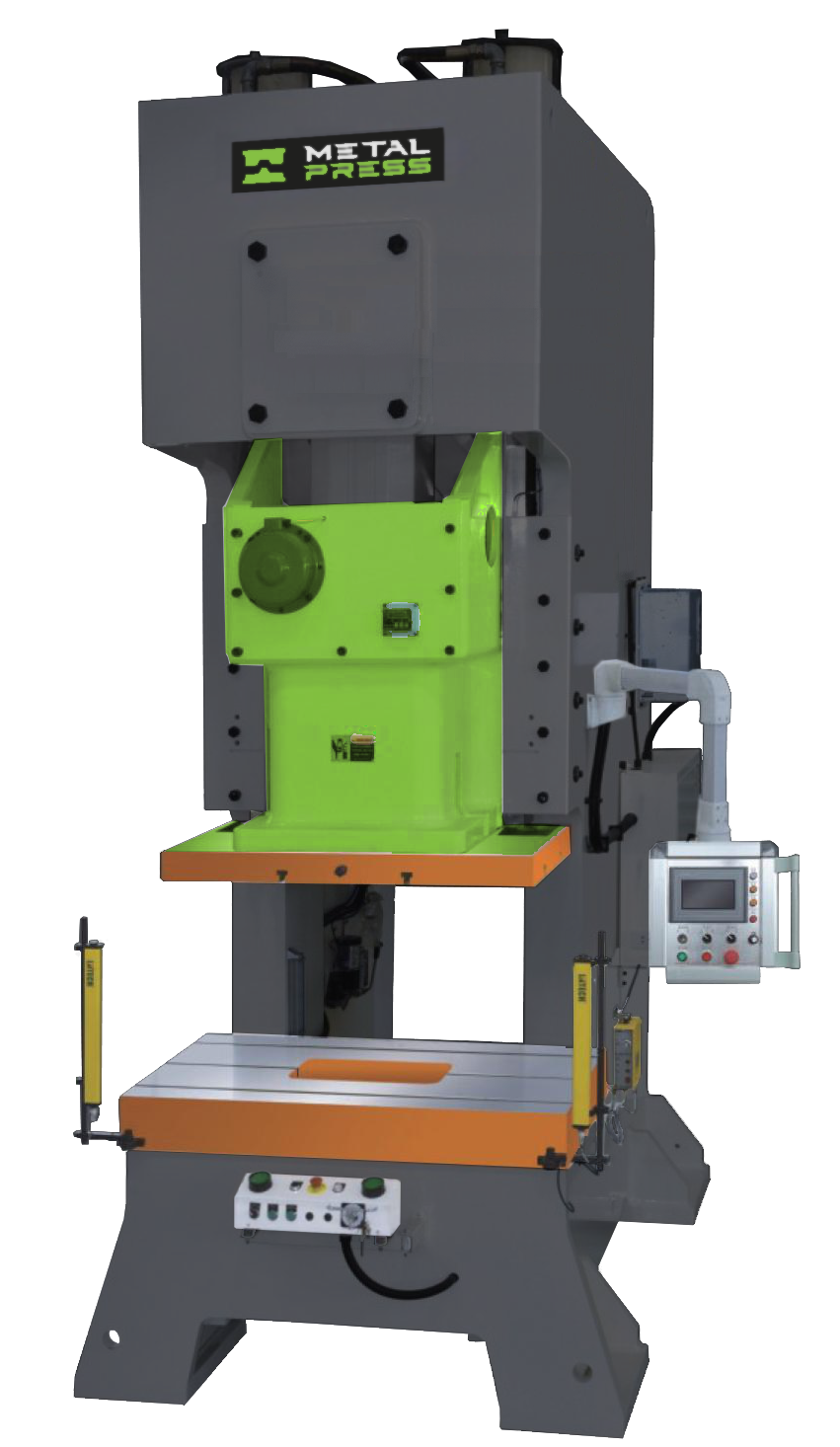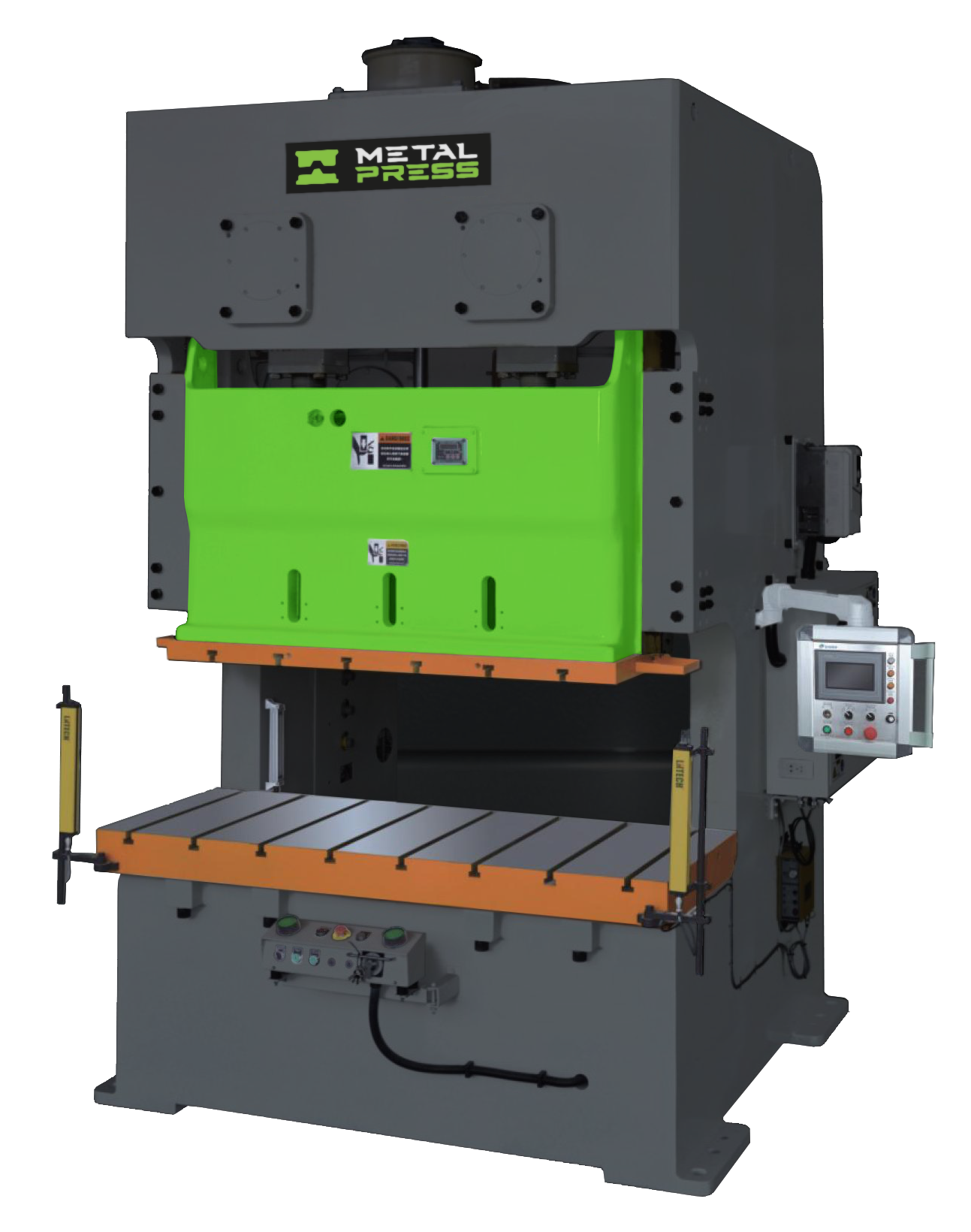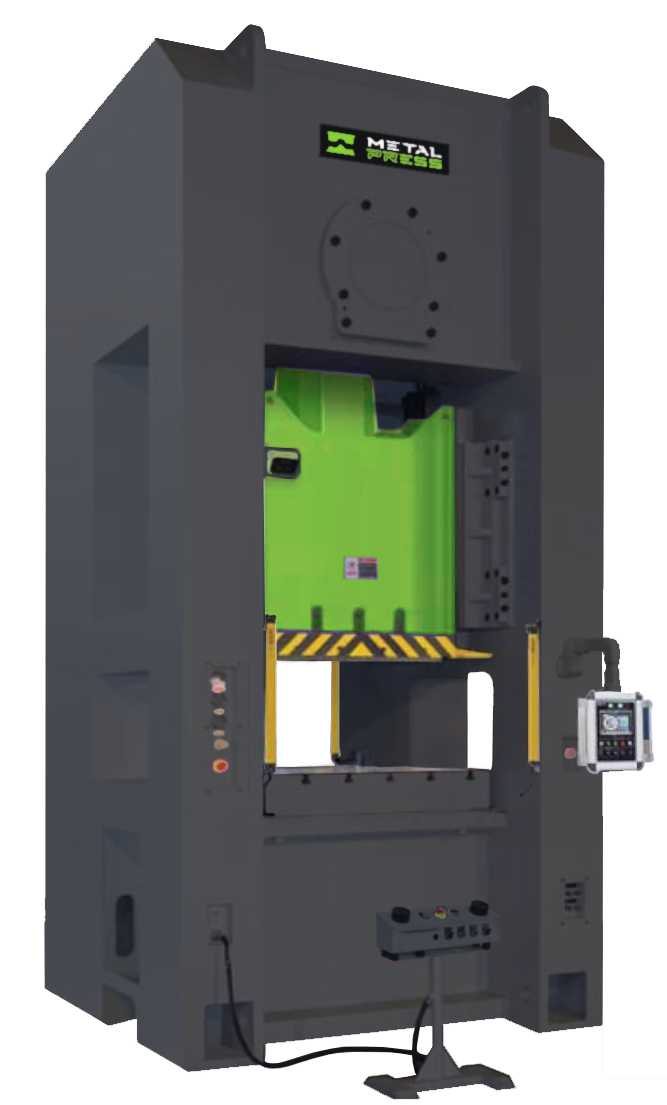Mechanical Presses
Discover our range of Mechanical Presses including C-Frame Single & Double Crank, and Straight Sided Single & Double Point presses.
What are Mechanical Presses?
Mechanical presses are foundational machines in the stamping and forming industry, widely used in automotive, appliance, aerospace, electronics, and general metalworking sectors. Unlike hydraulic presses, which rely on fluid power, mechanical presses operate through a flywheel, clutch, crankshaft, and connecting rods to generate force and motion. This system delivers consistent, repeatable strokes, making them ideal for high-speed, high-volume production.
The defining advantage of mechanical presses is their efficiency and speed. Once the flywheel is engaged, the press can deliver rapid strokes with uniform tonnage near the bottom of the stroke—where most forming takes place. This makes mechanical presses highly effective for operations such as blanking, punching, shallow drawing, bending, and progressive die stamping.
Mechanical presses are also recognized for their durability and reliability. Their rigid frame designs (C-frame or straight-sided) provide excellent die alignment and stability, while the crank-driven mechanism ensures consistent part quality over long production runs. These presses are especially well-suited for applications requiring high repeatability and minimal variation across thousands or even millions of cycles.
While mechanical presses lack the programmable flexibility of servo-driven systems, they remain a proven and cost-effective solution for many manufacturers. Their lower upfront cost, simpler maintenance, and ability to handle continuous mass production make them indispensable in industries where throughput and reliability are top priorities.
In summary, mechanical presses combine robust force, speed, and reliability, offering manufacturers an efficient solution for large-scale stamping and forming operations. Whether C-frame or straight-sided, single or double crank, mechanical presses continue to serve as the backbone of modern mass production.




